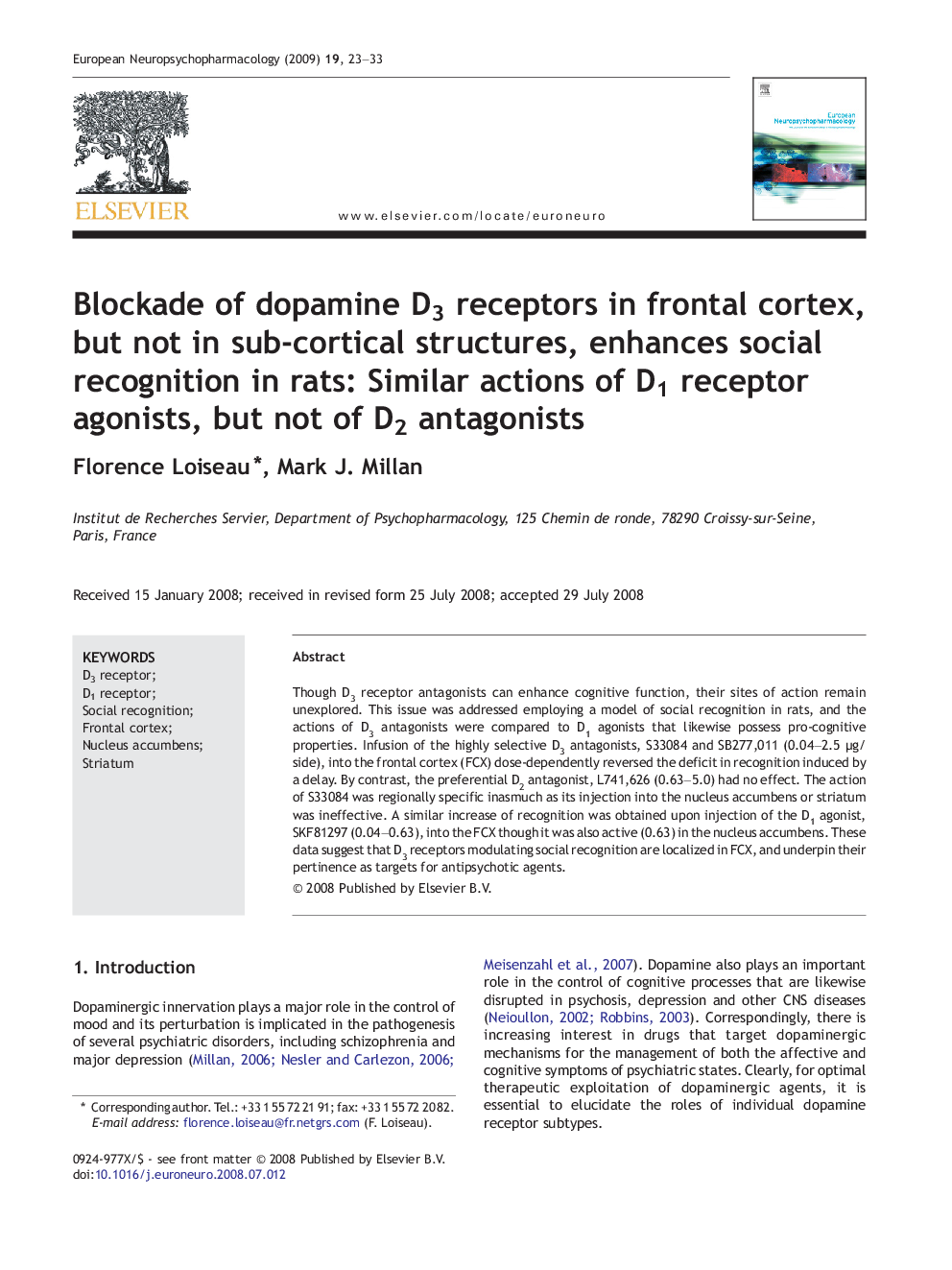| Article ID | Journal | Published Year | Pages | File Type |
|---|---|---|---|---|
| 319881 | European Neuropsychopharmacology | 2009 | 11 Pages |
Though D3 receptor antagonists can enhance cognitive function, their sites of action remain unexplored. This issue was addressed employing a model of social recognition in rats, and the actions of D3 antagonists were compared to D1 agonists that likewise possess pro-cognitive properties. Infusion of the highly selective D3 antagonists, S33084 and SB277,011 (0.04–2.5 µg/side), into the frontal cortex (FCX) dose-dependently reversed the deficit in recognition induced by a delay. By contrast, the preferential D2 antagonist, L741,626 (0.63–5.0) had no effect. The action of S33084 was regionally specific inasmuch as its injection into the nucleus accumbens or striatum was ineffective. A similar increase of recognition was obtained upon injection of the D1 agonist, SKF81297 (0.04–0.63), into the FCX though it was also active (0.63) in the nucleus accumbens. These data suggest that D3 receptors modulating social recognition are localized in FCX, and underpin their pertinence as targets for antipsychotic agents.
